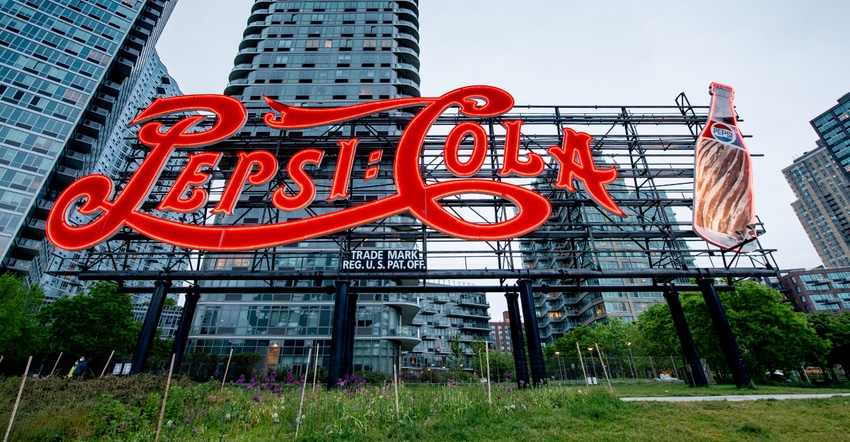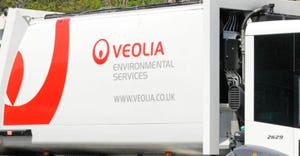PepsiCo on Target with Recycling Goals

PepsiCo recently released its 2019 Sustainability Report, highlighting “progress toward its sustainability goals and reaffirming the company's agenda to help build a more sustainable food system.”
The company tracks its sustainability efforts and shares insights on how this impacts the waste and recycling stream.
But first, in a message from its chairman of the board of directors and CEO, Ramon Laguarta says, “we know systemic problems require systemic solutions, and the pandemic has brought into sharp focus the larger need to address our long-term sustainability challenges…to take bold steps to catalyze positive change and bring about a stronger, more sustainable future for us all.”
Laguarta’s note goes on to highlight three overarching aims: to grow food in a way that regenerates land, ecosystems, and farming communities; to make products in a way that is circular and minimizes waste; to inspire consumers and communities to make better choices and enable positive change.
PepsiCo’s strategy for building a more sustainable food system focuses on six priority areas, which address what it sees as the most pressing challenges facing the food system while also offering the most opportunity for the company to use its global scale to make a “positive impact at a systemic level.”
The priority areas and a key progress point from each are as follows:
Climate: Reducing greenhouse gas emissions
“We reduced absolute GHG emissions by 6% across our value chain in 2019, progress toward our goal of 20% by 2030.”
Packaging: Supporting a circular economy by reducing, recycling, and reinventing our packaging
“In 2019, we set a new target to reduce 35% of virgin plastic content across our beverage portfolio by 2025.”
Agriculture: Making agriculture more intelligent, inclusive, and gentler on the earth
“Nearly 80% of our potatoes, whole corn, oats, and oranges are sustainably sourced, progress toward our goal of 100% by 2020.”
Product: Improving choices across our portfolio and integrating purpose into our brands
“As of 2019, 47% of our beverage portfolio volume in our top 26 beverage markets met our 2025 added sugar reduction target, progress toward our goal of 67%.”
Water: Using water more efficiently, replenishing water locally, and helping to ensure water security
“We delivered safe water access to more than 44 million people in underserved communities since 2006 (exceeding the goal five years early) and set a new target to reach 100 million people by 2030.”
People: Advancing respect for human rights, promoting diverse and inclusive workplaces, and empowering women across our business and throughout our global value chain
“Since 2016, we've invested $38.5 million to support initiatives that provide women with essential resources for workforce readiness and programs that support women in the food system and farming.”
Some specific data points cited in the report that would be of particular interest to the waste and recycling industry include:
88% of PepsiCo’s packaging is recyclable, compostable, or biodegradable; making progress toward the goal of 100% by 2025
$65M was pledged globally to advance recycling and collection between 2018 and early 2020
82% of the company’s palm oil was RSPO-certified sustainably sourced in 2019, making progress toward its end-2020 target of 100%
PepsiCo locally replenished over 1.6B liters of water in high water-risk areas in 2019
Through growth of its SodaStream business, an estimated 67 billion single-use bottles will be avoided through 2025
47% of its beverage portfolio volume in its top 26 beverage markets met the 2025 added sugars reduction target, progress toward its goal of 67%
61% of its food portfolio volume in its top 23 foods markets met the 2025 sodium reduction target, progress toward its goal of 75%
Over the life of the company’s Frito-Lay electric vehicle fleet, it will have driven12 million all-electric miles
PepsiCo is currently using 100% renewable electricity in nine European countries
41% of its manager positions were held by women in 2019, progress toward the goal of 50%
The report and an accompanying video elaborate on PepsiCo’s Sustainable Farming Program that has helped more than 40,000 farmers “grow more with less, use water more efficiently, and reduce greenhouse gas emissions.” The company touts its global network of more than 230 demonstration farms that let farmers “learn and share techniques that can boost yield and profit.”
In an interview that accompanies the online reporting package, chief sustainability officer Simon Lowden notes that, “Even before COVID-19, the threat of climate change has demanded faster and bolder action from all of us. The resilience of our food system and the future of our planet depends on it.” He also talks about how the company recently signed the Business Ambition for 1.5°C pledge, “committing to reduce our emissions in line with limiting global warming to 1.5°C, while also developing a long-term strategy for achieving net-zero emissions by 2050.”
Laguarta concludes by saying that, “With the help of partners and the leadership of our first-ever Chief Sustainability Officer, Simon Lowden, we will look to build on the tremendous progress we’ve made and double down on our efforts in the months and years ahead. We know that the success of our company and the prosperity of our societies go hand in hand. Only by working together can we emerge from the current crisis stronger than before, less vulnerable to future shocks, with more resilient communities, a more sustainable food system, and a brighter future for all.”
About the Author(s)
You May Also Like




